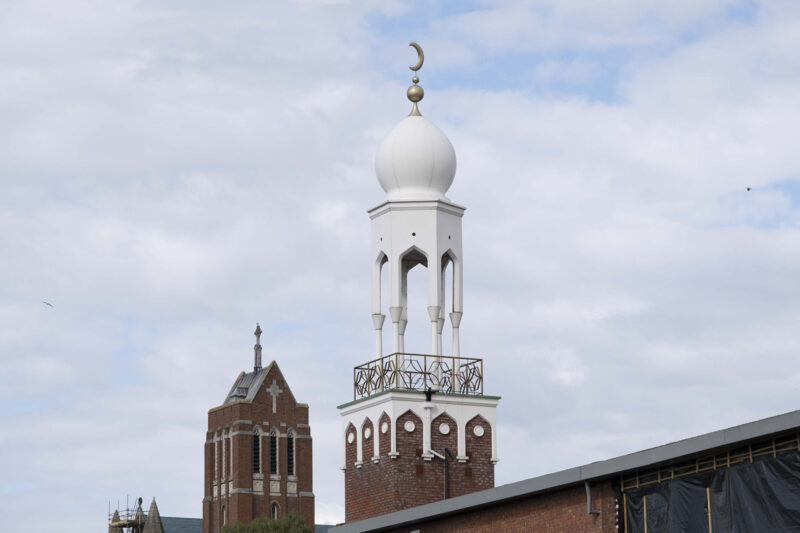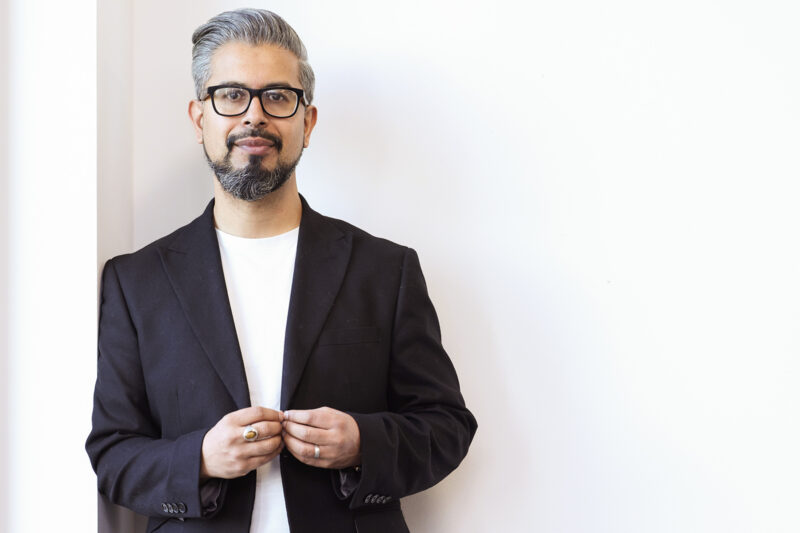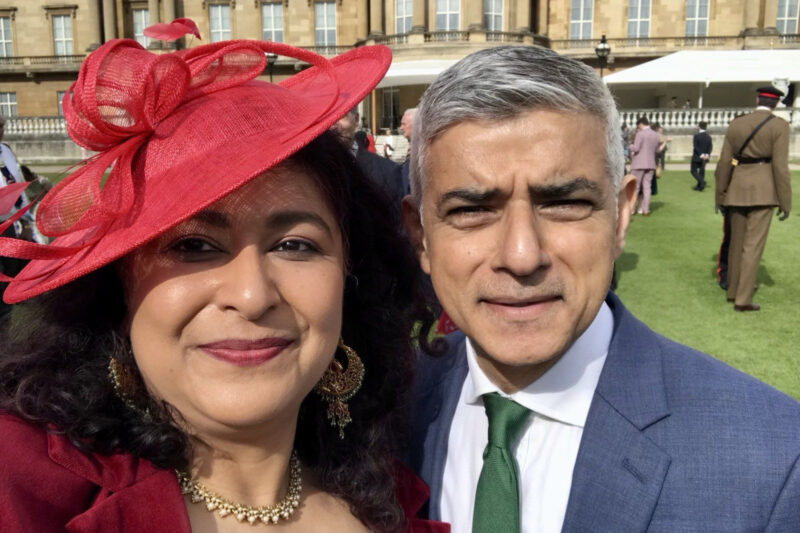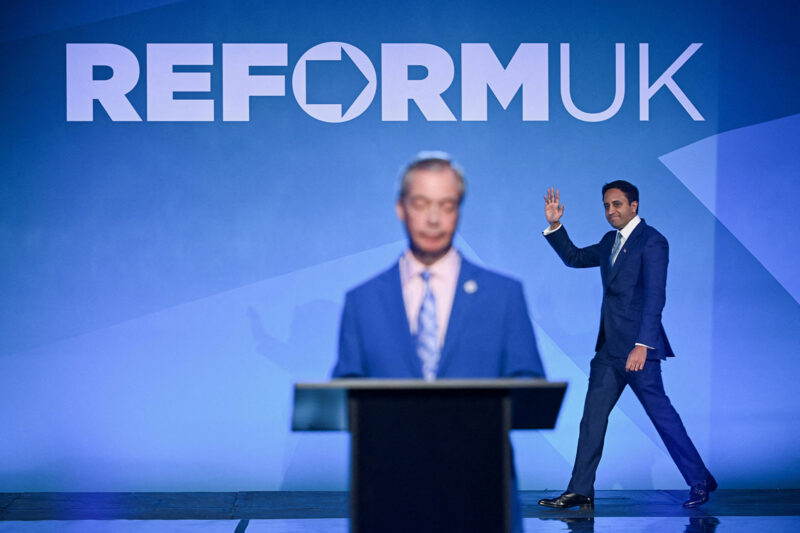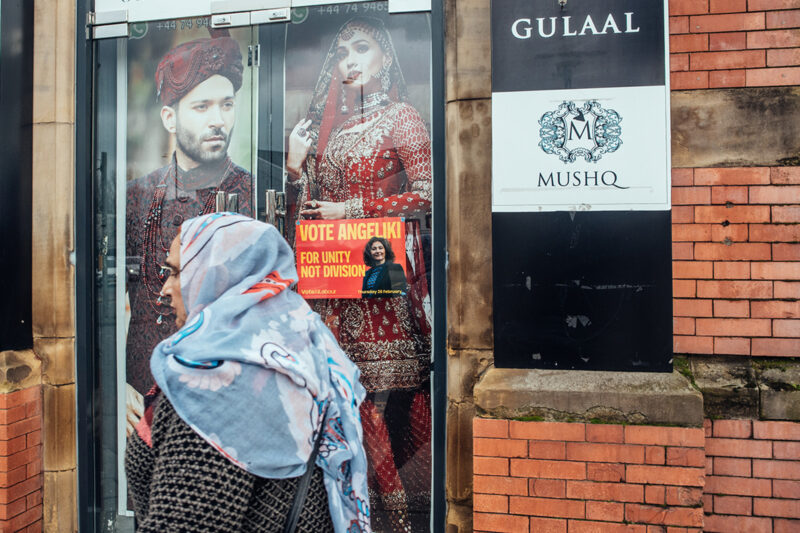‘Now more than ever, workers need the power of a union’
Shavanah Taj, the first Muslim general secretary of the Welsh TUC, is determined to keep building a labour movement that gives everyone a seat at the table
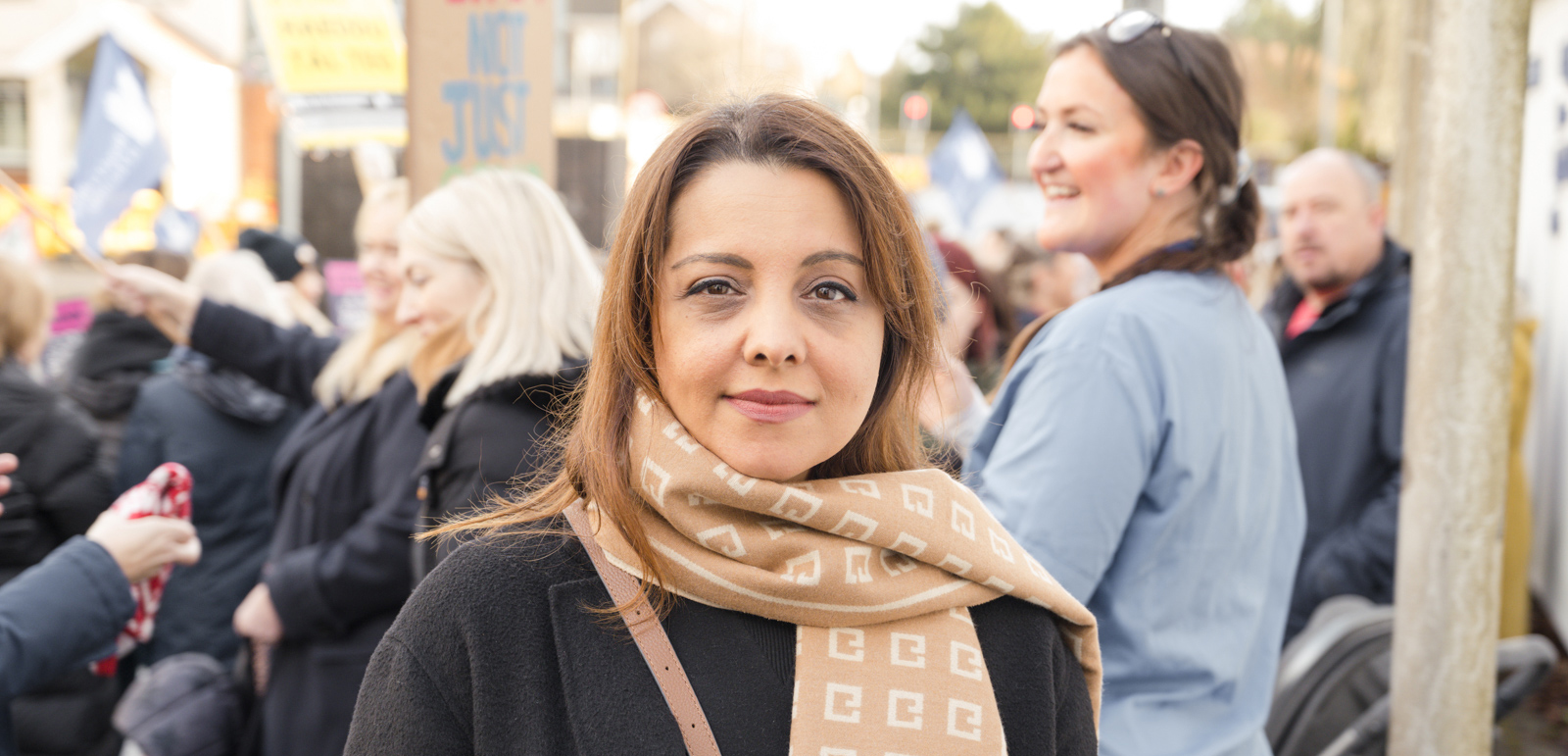
As millions of people are all too aware, the UK is in the midst of its worst cost of living crisis in decades. Flatlined wages, declining standards of living and sky-high inflation have also prompted a wave of industrial action that has swept across the country.
With workers in industries from healthcare to transport and the postal service all locked in disputes with their employers, trade union leaders and representatives are increasingly in the spotlight. Among them is Shavanah Taj, the first Muslim general secretary of the Wales Trade Union Congress.
On a chilly December morning, I joined Taj on a picket line, organised by the Royal College of Nursing, outside Cardiff University Hospital. There, she explained that unions play a vital role in the lives of working people and that the right to take industrial action is fundamental to a functioning democracy. If the honks of support from passing motorists are anything to go by, a significant proportion of the public agrees with her.
“Many of the rights you enjoy at work have been won by organised trade unionists standing up and fighting hard to ensure your workplace is safe and healthy,” Taj said. “‘There’s power in the union’ isn’t just a slogan, it’s a movement that has stood the test of time.”
That idea of solidarity was clear to see on the picket lines, which reflected the diversity of the National Health Service: Black, White and South Asian nurses standing united.
“It’s good to see more visibly Muslim women,” Taj, 46, added. “I do think unions are becoming much more aware of the fact that they haven’t been as representative as they could have been in the past.”
Disproportionately working-class and, according to recent data, far more likely to live in the most deprived parts of the country, UK Muslims are among those feeling the worst effects of the country’s economic problems.
Taj’s job is to stand for 48 member-affiliated unions and 400,000 workers in Wales. She works with a team of union representatives and sits on numerous boards and bodies, including the Workforce Partnership Council, which brings together trade unions, employers and the Welsh government to discuss labour issues.
“I know I am in an extremely privileged position to be leading the Welsh trade union movement,” she told me. “Now more than ever, with the cost of living crisis and the impact of austerity, workers need a trade union. It’s been heartwarming seeing so many people getting involved in the labour movement for the first time. It’s important that we support future leaders to keep our movement growing and to keep championing the interests of communities like our own.”
After saying our goodbyes to the striking nurses, we headed to Taj’s office on Cathedral Street. The Unite the Union building, home to the Welsh TUC and a number of other labour organisations, sits at the heart of Cardiff, both geographically and historically.
“We’re in the oldest union building in Cardiff,” Taj explained. “When I was a kid, we’d go past here and my dad would always say, ‘This place is really important. It’s where you go to when you have a problem at work,’ Now, I get to work here.”
Both of Taj’s parents helped to shape her political beliefs. Her father, Mohamed Taj Khan, is 83. He arrived in Port Talbot, in the county of Neath, in 1958 from a village in the Pakistani region now known as Khyber Pakhtunkhwa. While working in the Welsh steel industry he became a committed member of the Transport and General Workers’ Union.
In the late 1960s, Mohamed moved his growing family to Cathays, a working-class area of Cardiff, to take a job at a nearby steelworks. It was within that union stronghold that Taj was born in 1976 and grew up as one of four siblings.
“Everyone worked in factories and the steelworks,” she recalled. “My dad eventually became a health and safety rep. He was the go-to person for other South Asians that wanted jobs in the steelworks. That’s how people did it back then. He brought a lot of people into the union that way.”
While Cathays was home to a tight-knit community, it was not one in which Taj’s family — the only South Asians on their street — was initially made welcome.
“It was very common for us to have ‘Pakis out’, ‘Pakis go home’ sprayed on the side of our house,” she said. “We frequently had fireworks or Tesco bags with dog shit put through the door.”
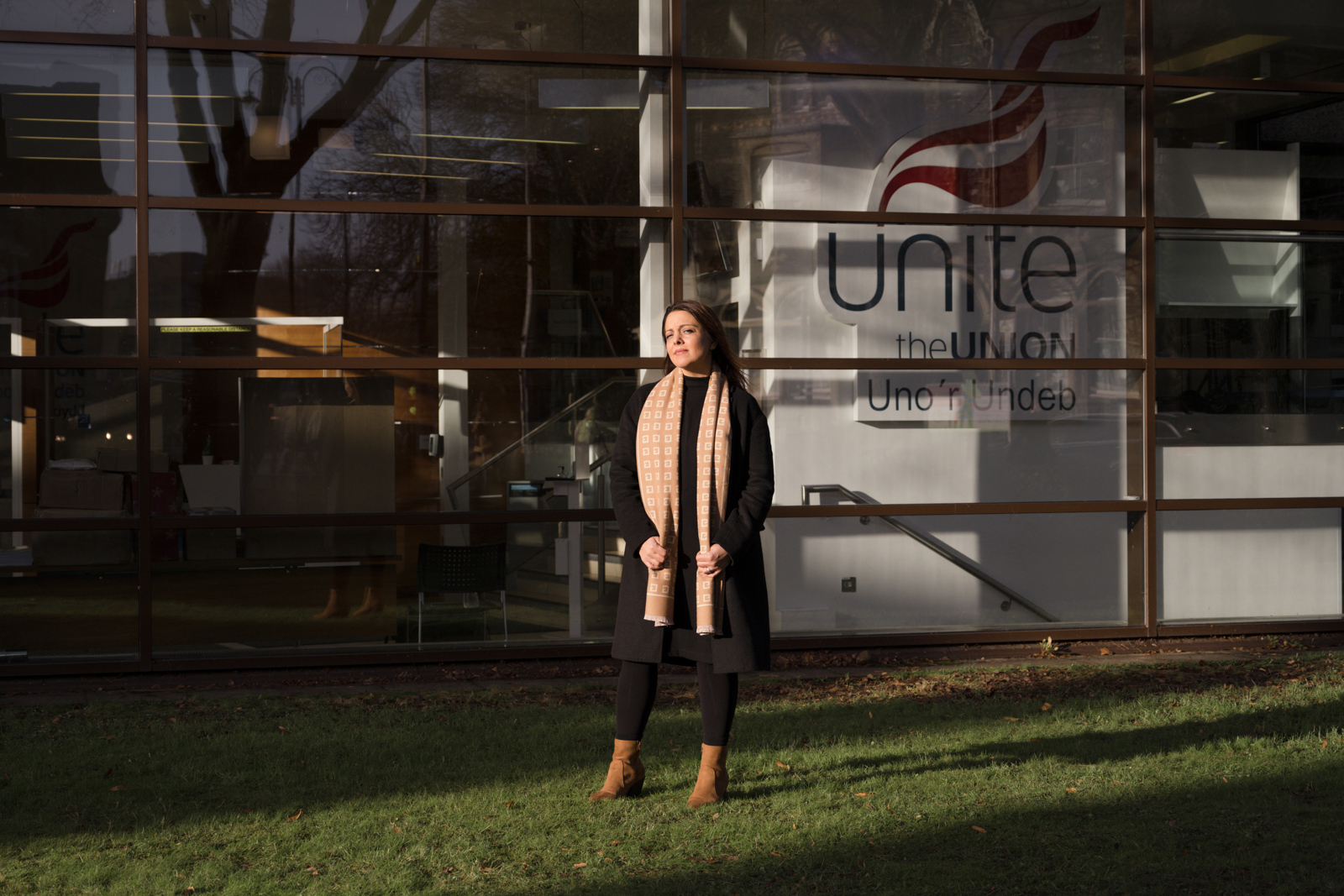
Those experiences formed the foundation of Taj’s commitment to equality and anti-racism. Meanwhile, the fabric shop her mother and older sister ran taught valuable lessons in grassroots activism, acting as a community hub and informal advice centre for local South Asian women.
“They would come in if they had a problem with their child at school or for simple things like help filling out a form,” Taj explained. “My sister would also help them if they were having issues in their relationships.”
Taj’s sister had endured a turbulent marriage that eventually ended in divorce. In the late 1990s, she used the shop as the base for an organisation called the Henna Foundation, established to help victims of honour-based violence and domestic abuse. Taj got involved with the project from the start, picking up skills and experience that she still uses to this day.
“My parents operated on the basis that if someone asks for your help, you should always do everything that you can,” she said. “I think this also comes from my faith as a Muslim. Even if you don’t have enough for yourself, what you do have, you should share. That’s intrinsic to me. It’s in my DNA.”
In November 2022, Mick Lynch, leader of the RMT rail union, spoke to a crowded mosque in north London as part of a rally for the campaign group Enough is Enough. His speech ranged from the floods that tore through Pakistan in 2022 to the fact that low-paid agency workers are disproportionately people of colour.
Religious and ethnic minorities have long played an important role in the UK labour movement. However, achieving recognition as an integral part of the working class has been a slow process.
For decades, UK Muslims have been involved in headline-making disputes over conditions that have affected all workers. The Vauxhall factory strikes in Luton in 2001, prompted by the threat of mass redundancies, is just one example among many.
In other instances, their grievances have been based on open discrimination in the workplace. Take, for instance, the Courtauld’s Red Scar Mills strike of 1965. Then, Indian and Pakistani textile workers In Preston, Lancashire, downed tools over their employer’s decision to force Asian workers to man more machines for proportionally less pay than their white colleagues.
Ultimately their campaign failed, owing to a lack of support from the Transport and General Workers’ Union, which encouraged workers to compromise with management. This outcome repeated itself in subsequent actions, such as the Mansfield hosiery strike in Loughborough in 1972 and the Imperial Typewriters strike of 1974 in Leicester.
In the absence of effective union support, religious institutions and independent collectives stepped in to help South Asian workers to organise. Founded in 1938, the Indian Workers’ Association — a secular group that included Indian and Pakistani Muslim members — exerted significant influence in industrial relations for more than 50 years.
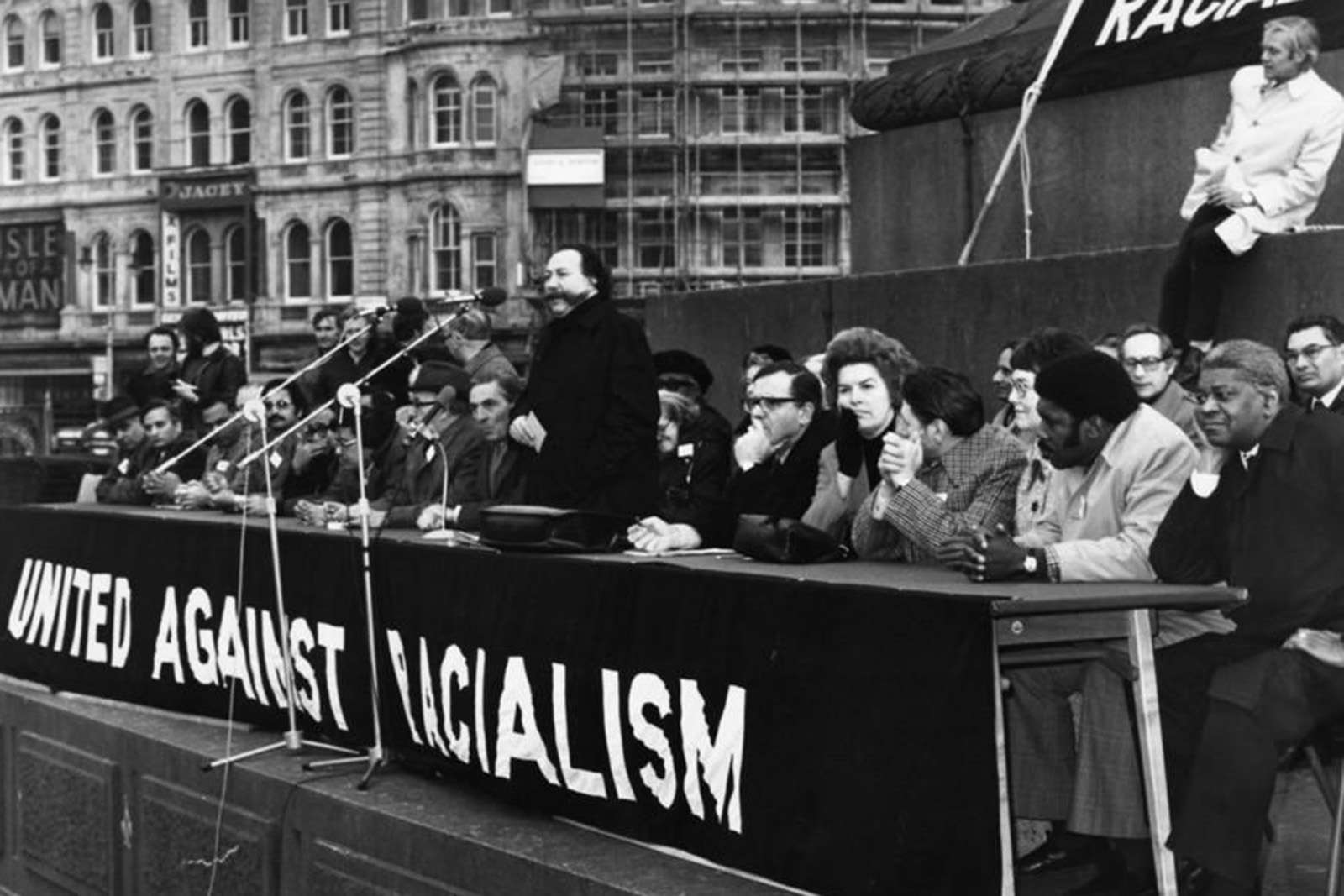
Many of the disputes the association became involved in centred around cultural issues, including the right to time off for religious festivals and breaks for daily prayers. In 1971, 100 Pakistani employees of the Redland Brick Company near Peterborough planned to stop work to celebrate Eid. They were told they would lose pay, bonuses and, possibly, their jobs if they did. The workers said that conducting Eid prayers in the company canteen was unacceptable and that they needed time to attend a proper place of worship. The threat of industrial action forced the company to relent and provide a bus to take its Muslim employees to the local mosque.
The history of neglect by the union movement has contributed to a lingering distrust among some South Asian workers. Deindustrialisation and decades of legislation limiting the labour movement’s effectiveness have also led to a situation where union membership now stands at a historic low. I asked Taj about the challenges unions face in attracting new members, especially within minority communities.
“I think we should learn from our history,” she said. “When you look at organisations like the Indian Workers’ Association and the Asian women’s movements, we could learn from them. People need to be more connected through their own grassroots networks.”
She also points to the fact that many large industries have been replaced with self-employment and the gig economy. Like many others in the country, a significant number of British Muslims are engaged in precarious jobs, such as delivery work and driving, where collective organising is rare. Taj believes that the labour movement has to understand the needs of these workers and be proactive in reaching out to them.
“If somebody asks me to speak or get involved with an event, I’m not going to turn it down just because I know there will only be 10 people there,” she said. “Those 10 people that I have a discussion with or help, seven of them could join a union, become active within it and bring more people in.”
By way of example, Taj referred to her recent work with Cardiff’s taxi drivers, many of whom are from Somali, Yemeni, Bangladeshi and Pakistani backgrounds. At the height of Covid-19, male drivers were four times more likely to contract the virus than the rest of the population. On top of that, the trade had plummeted, owing to pandemic restrictions and curfews. One driver reported to Wales Online in November 2020 that he was earning just £15 in fares from an eight-hour shift.
“We got them all together, around 130 people in the room, and maybe a quarter of them were in a union. By the end of the meeting, the majority of them had joined,” said Taj.
That mobilisation meant that drivers in Cardiff were able to contribute to a Welsh government consultation on transport and a Cardiff City Council review of the taxi trade, ensuring that their voices were heard directly by the Welsh transport minister. Proposed changes that would allow drivers from outside the city to take work away from local ones were paused. Some of the drivers went on to become union representatives. One now works as an official organiser for Unite in Wales.
“Seeing him getting involved and bringing others in has been heartwarming,” said Taj. “It’s really important for us to make sure that we keep growing and keep building, but that we build in a way that is accessible to people.”
Ali Haydor, a taxi driver in Southampton for nearly 20 years, agrees. He serves as a national representative of the GMB and national chair of the committee for Uber drivers. One of his union’s most recent successes was a campaign to make Uber provide sharia-compliant pensions for Muslim drivers. That victory came off the back of a more significant Supreme Court case won by the GMB in 2021, which forced Uber to guarantee that all 70,000 of its drivers would earn at least the national minimum wage and be entitled to paid holiday and automatic enrolment into a pension plan.
Despite these wins, many drivers still don’t hold union membership. When he encounters resistance to joining, Haydor has a simple response.
“Their view is often, ‘OK, I’m going to pay you £15 a month. So, what exactly are you going to do for me?’ They want instant results, but I always challenge them. I say, ‘If you’ve got an insurance policy for your car, then joining a union is an insurance policy for your adult working life.’”
To be a truly successful mass movement, Taj believes that trade unionism needs to be knitted into the fabric of all working-class communities. She also considers it vital for representatives to have experience of and remain in touch with the realities of contemporary working life.
Until her mid-20s, Taj worked a variety of jobs in retail, call centres and the third sector. “I got to experience first-hand what a bad boss looks like and how healthy and safe workplaces make all the difference,” she explained.
In 2002, Taj joined the Trade Union Congress organising academy, eventually landing a job with the Public and Commercial Services Union as a regional organiser for the London and South East region. At that time, there was a significant increase in the number of civil service jobs being outsourced to private companies, such as G4S and smaller security and cleaning subcontractors.
Many of the workers, as is still often the case, were from minority communities. “My job was to map the region, identify potential areas for growth and build networks to support organisation,” said Taj.
Workers were often too scared to talk about labour issues while at work, fearing that they could be spotted by bosses and lose their jobs. Some were worried about their immigration status and the effect that joining a union could have on their ability to provide for their families in the UK and abroad. Taj also noticed that many cleaners who sustained injuries at work were unaware of the legal and financial support they were entitled to. Hands-on engagement was essential if they were to access the help they needed.
“I’d go in at 5am, when their shifts started, because the managers weren’t in yet. That was how you would meet with people to find out what was going on and try to recruit union reps,” Taj said.
That drive stays with her to this day: reaching out, making connections and presenting her case to workers that by joining forces and organising collectively, they can secure a better future. Despite overall union membership declining over the past few decades, uptake among Asian workers has remained stable between 2010 and 2021, according to the Office for National Statistics, while Black workers are the more likely to be in a union, compared with their peers from other ethnic backgrounds.
“The figures speak for themselves,” Taj said. “Our membership among Black and Asian workers is pretty high now. It’s not that people do not want to be members of a union. They just sometimes felt that they’d not been fairly represented and didn’t see themselves at the decision-making table.
“The best part of my job is the people I meet and the people I work with. The fact I get to be part of history and that I’m able to use my voice to help tackle injustice, sometimes I still have to pinch myself.”
 Newsletter
Newsletter


